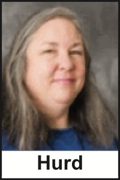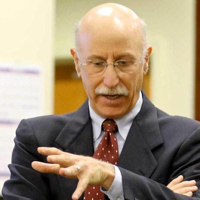Rascals case in brief
In the beginning, in 1989, more than 90 children at the Little Rascals Day Care Center in Edenton, North Carolina, accused a total of 20 adults with 429 instances of sexual abuse over a three-year period. It may have all begun with one parent’s complaint about punishment given her child.
Among the alleged perpetrators: the sheriff and mayor. But prosecutors would charge only Robin Byrum, Darlene Harris, Elizabeth “Betsy” Kelly, Robert “Bob” Kelly, Willard Scott Privott, Shelley Stone and Dawn Wilson – the Edenton 7.
Along with sodomy and beatings, allegations included a baby killed with a handgun, a child being hung upside down from a tree and being set on fire and countless other fantastic incidents involving spaceships, hot air balloons, pirate ships and trained sharks.
By the time prosecutors dropped the last charges in 1997, Little Rascals had become North Carolina’s longest and most costly criminal trial. Prosecutors kept defendants jailed in hopes at least one would turn against their supposed co-conspirators. Remarkably, none did. Another shameful record: Five defendants had to wait longer to face their accusers in court than anyone else in North Carolina history.
Between 1991 and 1997, Ofra Bikel produced three extraordinary episodes on the Little Rascals case for the PBS series “Frontline.” Although “Innocence Lost” did not deter prosecutors, it exposed their tactics and fostered nationwide skepticism and dismay.
With each passing year, the absurdity of the Little Rascals charges has become more obvious. But no admission of error has ever come from prosecutors, police, interviewers or parents. This site is devoted to the issues raised by this case.
On Facebook
Click for earlier Facebook posts archived on this site
Click to go to
Today’s random selection from the Little Rascals Day Care archives….
Click for earlier Facebook posts archived on this site
Click to go to
Today’s random selection from the Little Rascals Day Care archives….
Prosecutors have upper hand in plea bargains
May 9, 2012
“A Question of Innocence: A True Story of False Accusation” by Lawrence D. Spiegel was published in 1986, but this passage – lamenting plea-bargains by those falsely accused of assaulting children – applies exactly to Little Rascals:
“The innocent often fall prey to the waiting hands of the prosecutor and plead guilty to a lesser charge, just to put an end to the ordeal and to the separation from a child.
“Prosecutors, as a result of over-zealousness to protect the child, blind ambition to further a career or a number of other reasons, will do ‘strange’ things for a conviction. It is always to the prosecutor’s benefit to get a guilty plea, even to a lesser charge. Sometimes the prosecutor will wait until the accused is emotionally and financially drained, then the plea bargain offer is made….
“Some falsely accused are so battered and beaten, they accept the humiliation and anger and take the deal. Often this occurs with the consent of the victim’s attorney…. The stigma of the bargain will remain forever.”
UNCG professor showed no tolerance for skepticism
 Feb. 13, 2012
Feb. 13, 2012
“It is evident that, although mistakes were made in the handling of the (Little Rascals) case, these children definitely were sexually abused by one or more individuals at the day care center. To suggest otherwise is to revictimize these smallest victims.
“As a professor of social work at UNCG whose specialty is child abuse, I would like the public to be aware that research has shown that 97-99 out of 100 children who report that they have been sexually abused are telling the truth. When a child tells you that an unauthorized adult is ‘playing doctor’ with him/her, it is highly likely that he/she is describing some sort of abuse.
“If you do not believe the child, you become part of the victimization of that child. If you believe that detection and prosecution of child abuse cases are witch hunts, then you protect child molesters and allow them to continue to traumatize children. I cannot imagine that the responsible people of this state want to put themselves on the side of criminals who abuse children.”
Elisabeth Porter Hurd, Greensboro
– From a letter to the editor of the Greensboro News & Record, June 9, 1997
Does Dr. Hurd still believe that the Little Rascals children “definitely were sexually abused”? And that to doubt the prosecution’s case was to “protect child molesters and allow them to continue to traumatize children”?
Last week I asked Dr. Hurd whether she might have changed her mind – so far no response.
APSAC official acknowledges ‘granddaddy of our “oops!”’

heraldnet.com
Paul J. Stern
Oct. 9, 2016
Paul J. Stern, recently retired prosecutor in Snohomish County, Wash., has long served the American Professional Society on the Abuse of Children as a board member and as an instructor on forensic interviewing.
At the least his June presentation to a large audience of APSAC conventioneers promised to be provocative: “What Practices Are We Engaging in Now That 15 Years From Now We’re Going to Look Back on and Think ‘What in the World Were We Thinking?’ ”
But the title paled in comparison with what Stern went on to say about the rap sheet of this ostensibly professional organization – its serial gullibility about “satanic ritual abuse,” “multiple personality disorder” and various other “misguided ideas.”
Click below to watch a video of Paul J. Stern’s entire talk.
He rambles, and the video suffers from not showing his accompanying PowerPoint. But the case he makes is powerful, unmistakable and surely discomfiting to audience members such as President Emeritus for Life Jon Conte and Board Member at Large Kathleen Coulborn Faller.
“I may irritate a few of you from time to time,” he noted as he began.
Some excerpts, edited for clarity:
- “I want to start by going back to the ’60s, the ’80s, the things we cared about then…. Some of the things we’ve grown up from in this field…. What were we thinking back then?… Oy! (clutches head, steps away from lectern)….What the hell were we thinking?….”
- “Let’s get the granddaddy of our ‘Oops!’ out of the way: ‘satanic ritual abuse.’ Individuals and agencies that weren’t skeptical failed to recognize that all of the iceberg that existed was the tip….And that melted pretty quickly…”
- “This matters [because] prosecutors sentenced people to prison based on good, scientific evidence that turned out not to be accurate.”
- “Why does all this happen? Child abuse is both an advocacy field and a political field. We’ve got to energize the base, energize the policymakers, get their attention…. Easy answers manage anxiety, and they get attention. ‘Kids never lie!’ ‘Believe the children!’ Great slogans, great bumper stickers, but it’s a little more complicated than that….”
Prosecutor Stern continued with a call for APSAC to focus on “evidence-based decision-making,” but I remained stunned by his acknowledgement of decades of APSAC’s cocky, costly wrongheadedness. Yes, innocent defendants such as Bob Kelly did indeed go to prison based on unfounded theories and corrupt interview practices.
Thank you, Mr. Stern, for your candor. Will this moment turn out to be an aberration – or is APSAC finally ready to make amends to the real victims of its “satanic ritual abuse” mythology?
![]()
Donald Trump has Harvey. Nancy Lamb had Floyd.

nasa.gov
Harvey
Aug. 27, 2017
In 1999, when the last charges against Bob Kelly were dismissed, here’s how Joseph Neff of the News & Observer described the scene:
“The prosecutors in the longest, most expensive criminal case in North Carolina history picked a day when all attention was focused elsewhere to quietly throw in the towel.
“It was Sept. 15, as Hurricane Floyd churned northward toward landfall the next day, that Assistant District Attorney Nancy Lamb filed a two-page document with the Clerk of Superior Court in Edenton, dismissing eight counts of sexual abuse against Robert Kelly.”
![]()











0 CommentsComment on Facebook